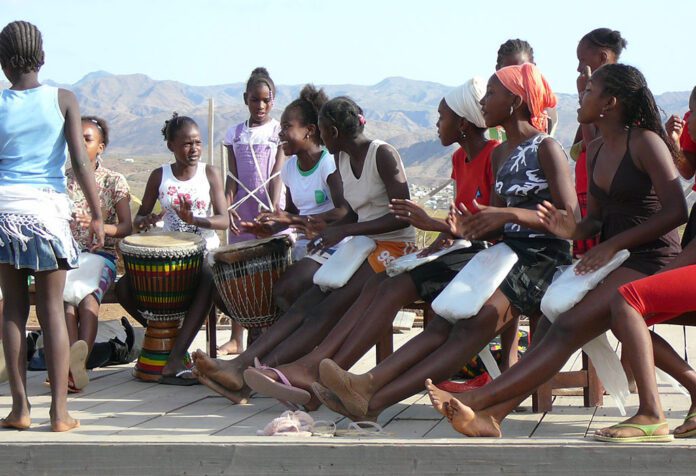One of the most popular oral traditions of Cape Verde is the batuku song and dance. The dance involves men clapping their hands to the sound of the drum or an accompanying instrument. Primarily, the batuku is a woman’s dance.
During colonialism, King Manuel I of Portugal passed a law prohibiting the dance. He also banned another type of dance, funana. They were both said to be “too African” and “too primitive,” “noisy,” and “indecent” by the Portuguese.
The dance was one form of resistance to cultural imperialism throughout Portuguese rule. Colonial powers pushed for the ban and restraint of batuku because it was a “rehearsal for rebellion”.
Any African who was caught dancing the batuku were sanctioned or even sent to prison. Batuku continued, however, underground in people’s homes. Explanations of the origins of batuku vary. Some argue it originated during slavery when masters raped women. Others believe that it came from women’s grief over the loss of a child, husband, or other family members. Batuku dance is the oldest form of dance in Cape Verde.
Batuku consists of a rhythmic beating and a call-and-response; the singer calls out, and others respond. Women sit in a semicircle and sing. While one woman, wearing a shawl around her upper thighs, dances in the middle of the circle. The woman dances slowly at first with rotating hips and then faster until there is a peak of dancing, cloth pounding, and chanting.
SEE: Two Africa Concepts? The Political Divided Structure
To illustrate their skills, some women put a bottle of an alcoholic drink on their heads while dancing. At the end of each song, the dancer selects the next dancer by giving her the shawl.
Individuals attempted to revitalize and promote what they considered to be truly Cape Verdean after the 1975 independence. This was part of an effort to build a new national identity and discard the colonialist and racist oppression throughout the islands. In the spirit of “re-Africanizing” Cape Verdeans, the new government encouraged both the study of batuku through research on oral traditions and the recording by musical groups. OMCV, the national women’s organization, promoted batuku festivals, and politicians often hired batuku groups to perform at their conventions.
Culled from: Spring Link
